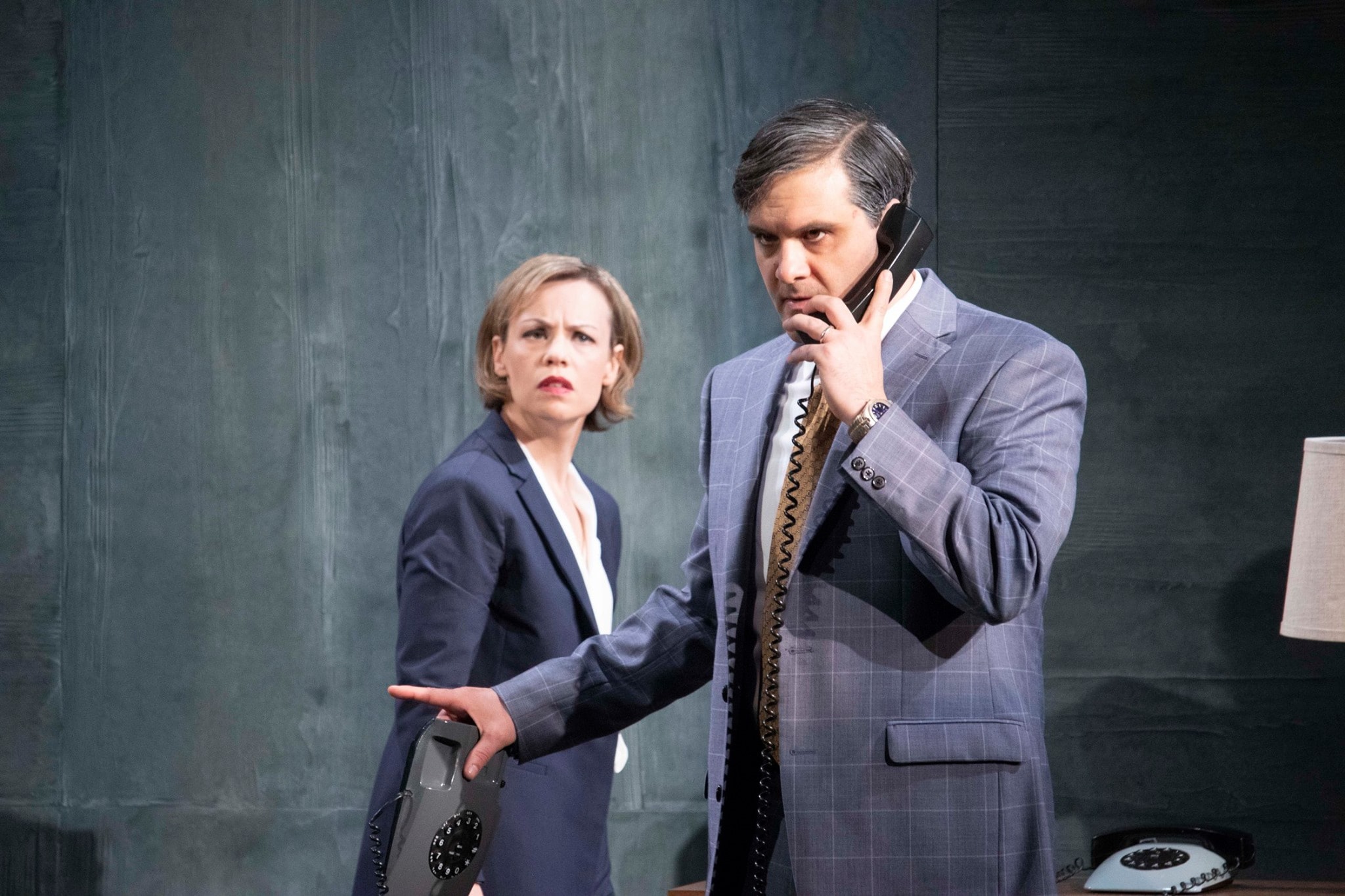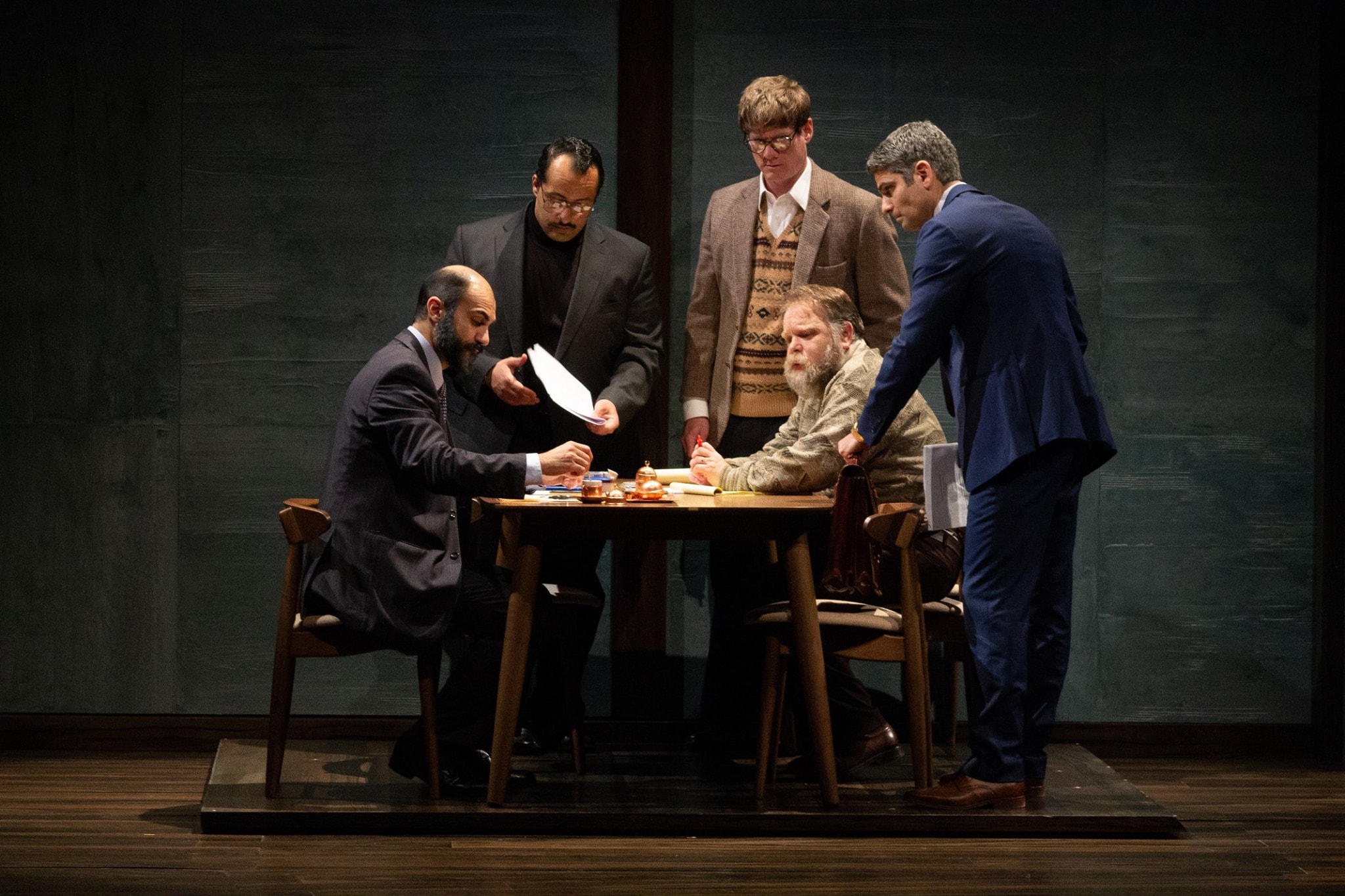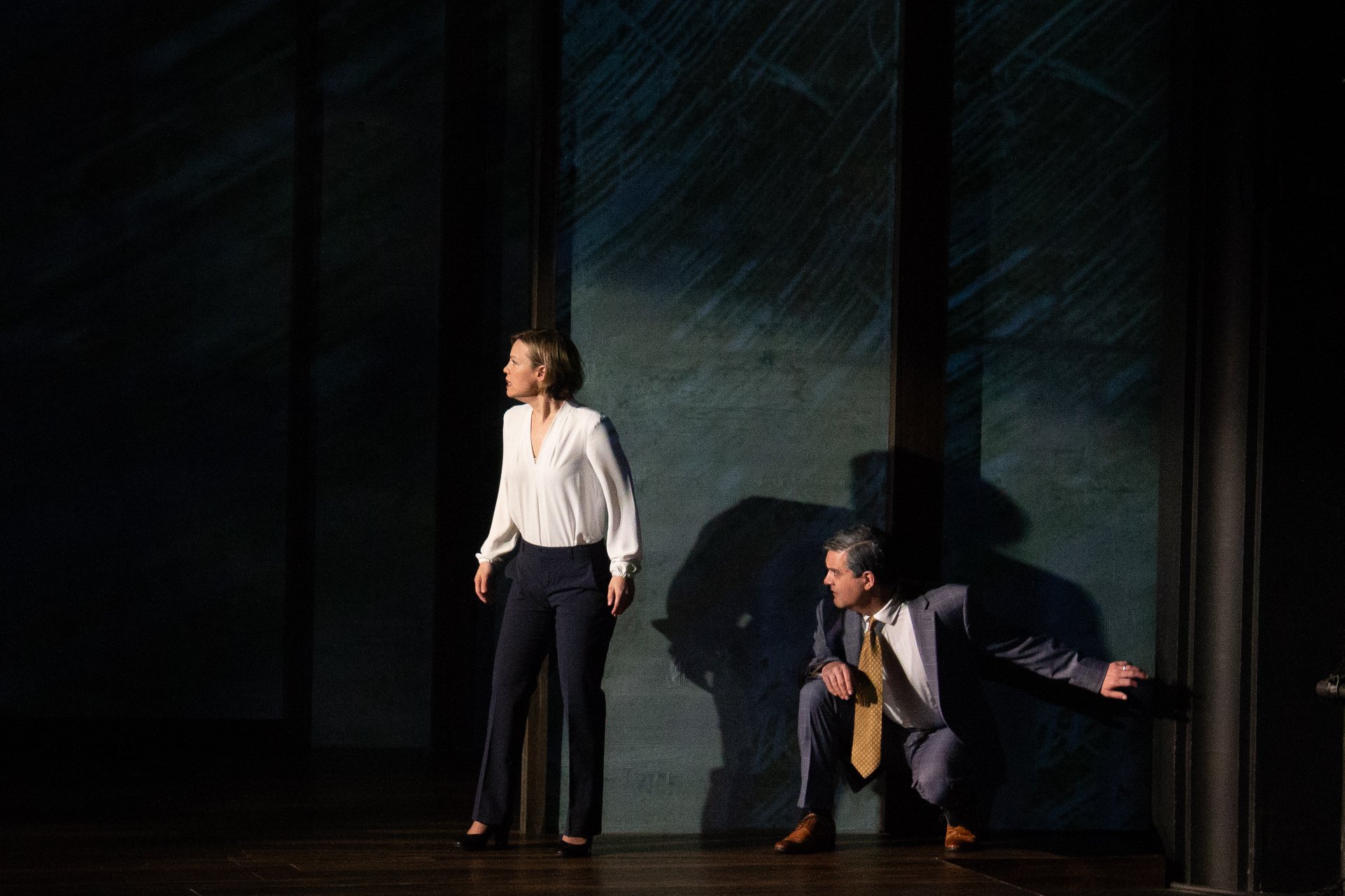It is rare that theater seriously asks us to believe something far beyond itself. Typically we are asked to suspend disbelief about let’s-pretend that happens on stage. The gripping and inspiring play Oslo leaves us with a different ask, one that in retrospect seems a massive task: We are challenged by the end to believe that a peace process between sworn enemies is not only plausible onstage but possible in the real world.
Playwright J.T. Rogers has dramatized the true story of the delicate back-channel negotiations in Norway between Israel and the PLO that culminated in the historic 1993 Oslo Accords. Official United States-led diplomatic efforts then as now were failing (“Fuck the State Department,” a bureaucrat says at one point). A Norwegian married couple, Terje Rød-Larsen (Cody Nickell) and Mona Juul (Erin Weaver), got it into their heads that they could parlay Norway’s neutrality and Rød-Larsen’s notions about organizational psychology into secret face-to-face meetings between Israeli and Palestinian delegates. Their idealistic idea—daft on the face of it given all the violence being done by both sides—was that if the adversaries could meet each other personally and see each other as fellow human beings, familiarity and trust would arise such that agreement could be reached incrementally, sticking point by sticking point.

Against all odds, it worked. There comes a point in Act Two when two men representing the opposing sides affirm their agreement by shaking hands, and Mona, who sometimes addresses the audience directly, tells us “the world began to change.” Even though we know a moment like that is going to come—because we know the story ends with a big deal—the gesture of that handshake takes one’s breath away. Somehow and by surprise it taps into some unacknowledged reservoir of longing for amity and reconciliation. We are seeing a theatrical emulation of a human meeting that really happened once, and something in us wants to believe it could happen again but we fear it never will. Certainly not with a bellicose president whose firmest handshakes are with other autocrats.
Rogers’s insightful script, Ryan Rillette’s crisp direction, and a deft cast keep Oslo’s storytelling engrossing and its diversity of characters vivid. A lot is spelled out, especially by Terje, about the fascinating theory underlying what he and Mona are up to—it’s a person-centered methodology, not organization-centric; it’s about gradualism, not all-or-nothingism. It also involves a cushy retreat and ample creature comforts like waffles and scotch. As Oslo unfolds, we can see clearly how that personal approach played out in practice, sometimes well and sometimes not so well—with ever optimistic Terje urging everyone to “push on” though there’s no “roadmap.”

Even more than what gets arrestingly told to us, what struck me about the Round House Theatre production is what gets simply shown to us without comment—particularly in the nuanced performances by Nickell and Weaver of Terje and Mona. For instance, when negotiators’ tempers flare and Terje is dissed, he never takes the bait; he always does something to defuse the situation. Even when physically threatened, he doesn’t counter attack; he withdraws, explaining nonconfrontationally, “I won’t be your punching bag.” His neutrality does not neuter him; to the contrary by his modeling of a manhood not invested in dominance and disparagement, it emerges as one of the reasons the all-male combatants come to feel at ease with one another.
The gender dynamics of effective conflict resolution stand out even more in how Mona comports herself. In this fraught world of contested masculinity, she is well aware that her presence as a woman is having a civilizing influence against what could easily turn into a brawl. At the same time, her adroit deflection of attempts to sexualize and hit on her steadily establish her as a voice the negotiators listen to and respect, as in her persuasive speech to them all reminding them of all the mothers and children their incessant strife has slain.

Within Rogers script about the Oslo Accords back channel, there lies the equally illuminating story of the back channel behind it: the scenes between Mona and Terje about trust-breaking and trust-building in their relationship. Theirs is a marriage of true minds and empathic principles. It is not uniformly harmonious, but we see that it always pushes on.
Ultimately what Oslo illustrates is that without Mona and Terje in the room—and their respective defections from standard-issue gender specs—everything would have broken down. Left to their own devices, these posturing men would have made a mess of it.
Oslo is not just history. It is a must-learn lesson for tomorrow.
Running Time: Approximately two hours 45 minutes, including one intermission.
Oslo, presented by Round House Theatre, plays through May 19, 2019, at the Lansburgh Theatre, 450 7th Street NW, Washington DC. For tickets, call the box office at (240) 644-1100 or go online.
RELATED REVIEW:




